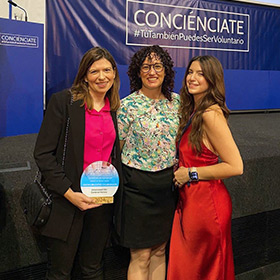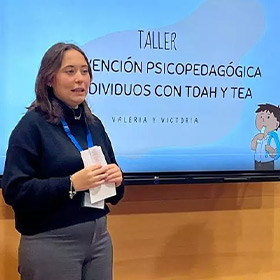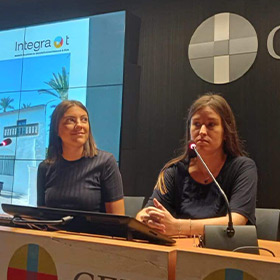Why service-learning?
The University forms part of the Fundación San Pablo CEU, the largest private educational institution in Spain, and the only one which includes four universities. Our educational philosophy is based on the values and principles of Christian humanism, the foundation of our efforts to personalize education through tutoring and integration programmes. These principles are also the basis for our social commitment, which can be seen in our grants and scholarships policies, our pioneering volunteering and community service initiatives, which operate at both the national and international levels. Our values also drive forward our research efforts. Our research seeks to improve the society we live in, from both technical and humanistic perspectives.
Our values and principles derive from the fact the University was founded by the ACdP (Asociación Católica de Propagandistas). The ACdP is a lay Catholic association founded in the 20th century, which went on to set up large media institutions and the Cáritas charity in Spain. The association also played a key role in Spain's peaceful transition to democracy. It has been a vehicle for committed, proactive people to create non-profit institutions which aim to improve society.
What is the service-learning approach?
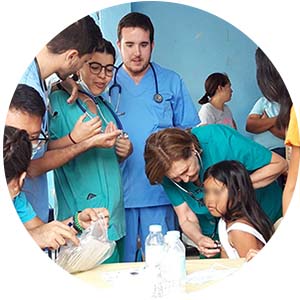
At the CEU Cardenal Herrera University, we know that the global society of the 21st century requires professionals who can think critically, who are comfortable in both the local and international environments, and who are ready and willing to make an ethical commitment to the community. Our educational project is based on the principles inherent to Christian humanism. The key is service-learning. In this educational approach, the learning process is combined with the provision of a service to the community – students learn about values and the value of commitment to society.
We offer activities which provide opportunities for meaningful learning about society as it really is. The service the students provide is related to the learning objectives of their degree and study year, and the University's overall learning project. In this way, the University seeks to promote community development through student activities related to their academic work, enabling students to better understand how their future professional activity can address real and specific social problems.
“If you can combine your career with your life goals, then you have hit the jackpot”
All of these activities are coordinated by the CEU Chair of Solidarity and the University's Pastoral Service. Our aim is to be an outlet for committed and hard-working students who want to devote their time and expertise for the benefit of our fellow human beings. This means helping both people close by and those who may live hundreds of miles away.
Pastoral Service
The Pastoral Service is where students, staff, lecturers and God come together. Everyone has the chance to discover, follow and commit themselves to Jesus Christ.
Over the course of the academic year, the Pastoral Service offers students many activities related to faith, volunteering, solidarity with others and education in Christianity (communion, confession, group trips, volunteering events, etc.)
In this way, believers or those with spiritual curiosity can find a place for Jesus in their day-to-day activities and routines at the University.
How can I become a volunteer?
Once you have the right skills, you will understand what volunteering and commitment really means. By being aware of where people's needs really lie, you'll be able to carry out your tasks much more effectively. That's why all volunteers need to do our volunteering training course for university students first and then a period of supervised practical training.
The CEU volunteering learning pathway also enables participants to gain recognition for the skills and competencies they develop while taking part, such as empathy, selflessness, self-improvement, commitment, and so on.
The process for those who wish to participate in volunteering programmes is:
1. Volunteering training course for university students
Do you want to show your commitment to those in need?
We want to support people like you: people with curiosity about life who want to find answers.
Volunteering offers participants a number different paths towards the same goal: to understand that serving others forms part of our mission in the world and brings true happiness. That's why the first step is to understand what concepts such as commitment, dedication and selflessness really mean in order to open our minds and capture the real significance of participating in volunteering programme.
Before you can undertake the practical training for volunteering, you'll need to undertake our volunteering training course for university students. The course topics are:
- What is volunteering?
- Commitment and dedication
- General methods for volunteering
- Types of volunteering
To apply for the volunteering training course for university students, write to [email protected]
2. Immersive Volunteering Experience
The immersive volunteering experience is the first step before joining a long-term volunteering programme. There are a variety of practical training options for students to choose from. The aim is for participants to see for themselves what a volunteering programme really involves and the commitment and dedication it requires.
3. Volunteering programmes
Once the course and practical training have been completed, participants can then choose from a wide range of volunteering opportunities requiring a greater degree of time commitment. Some of these activities are directly organized by university staff and others are run by trusted partner associations.
4. Microcredentials
A microcredential is the digital certification of a particular learning outcome, skill, or competency. In this case, by being a volunteer, you will gain a range of skills and competencies such as social awareness, civic responsibility, and environmental awareness. The University sees these skills as fundamental to our identity and to that of a professional who is capable of addressing today's social needs.
Local volunteering programmes
Local volunteering programmes are essential. You don't have to travel the world to help people. The fact is that there are groups of people in need everywhere you look. In many cases,you don't even need specialist knowledge in order to volunteer and help such groups.
Local volunteering programmes cover areas such as:
- Personal support volunteering
- Educational and training volunteering
- Leisure and diversity assistance volunteering
- Food bank volunteering
- School holiday volunteering
See all the local volunteering activities available on your campus:
Valencia Elche CastellónInternational volunteering
Inequalities, natural disasters and other needs can go way beyond the local area. Sometimes it's hard to see beyond the people around us, but we shouldn't forget that there are urgent and pressing needs all across the world: there are out there who are suffering from isolation, who need support, who need education, who are hungry, who need shelter – and the list goes on. International volunteering is an invitation to get involved in what's happening in faraway places with different cultures – it can be a rewarding, educational, and constructive experience, but one which you must approach with an open mind and without being judgemental.
See all the international volunteering activities available on your campus:
Valencia ElcheVolunteering stories
Solidarity in action
Sometimes we may think that volunteering isn't a good fit with the rest of our lives – but this may not be true. Volunteering requires a commitment, but it's far from incompatible with studying, working, family and maintaining friendships.
Agreements and partnerships
"I chose Nursing because I got involved in volunteering"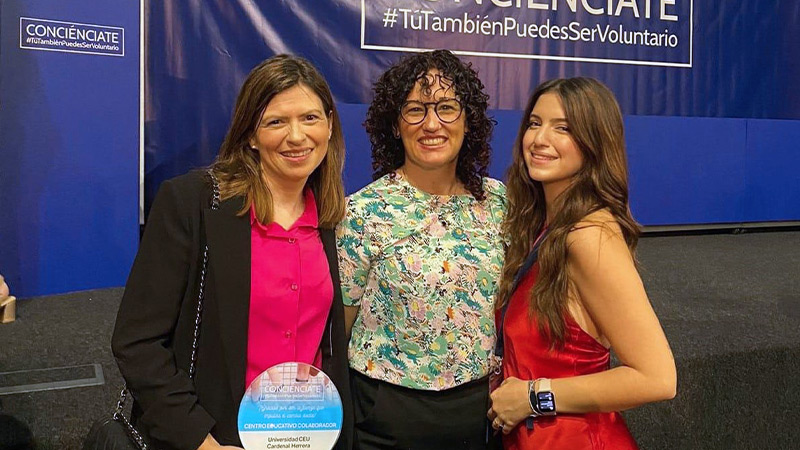
Lucía Gómez is a Nursing graduate from CEU's Elche campus. She told us that she decided to study Nursing because she got involved in volunteering. Lucía has since become the Coordinator at Fundación Conciénciate. She says that it's always possible to combine your studies with other important commitments – and she's a great example of this. Read the full story |
Launching an emotional health programme in Nairobi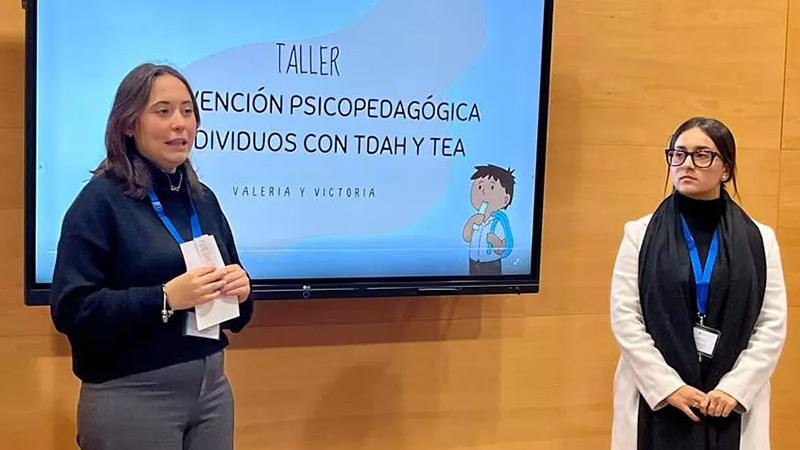
The CEU Cardenal Herrera University has embarked on an ambitious international volunteering project. Coordinated by Paloma Alonso Stuyck, a lecturer at the Universitat Abat Oliba CEU, the SMILE HUB project seeks to make a positive impact on education and emotional health in Nairobi, Kenya, through the provision of training for teachers and students in such crucial issues as developmental disorders and mental health. Read the full story |
Learning the value of helping other people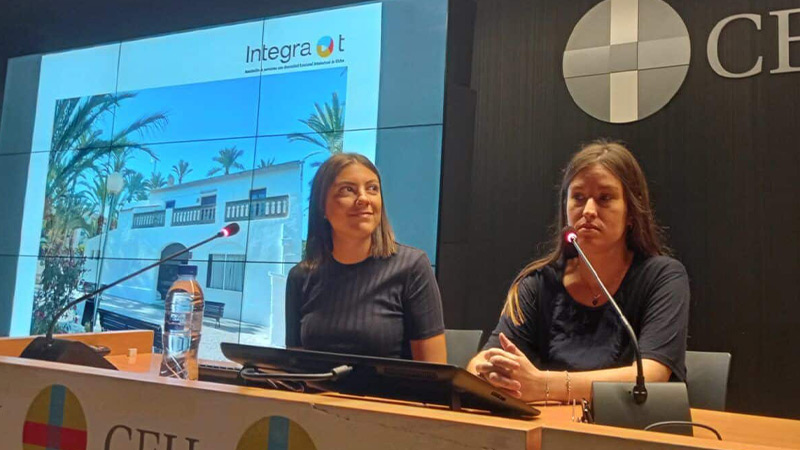
Nuria Andreu, volunteering coordinator at CEU's Elche campus and lecturer on the Education degree, sees service-learning as an experience of real value to students, who are able to work with different associations. This helps them to develop useful professional skills, but, even more importantly, social, civic and emotional skills too. Read the full story |
CEU Senegal Project 2025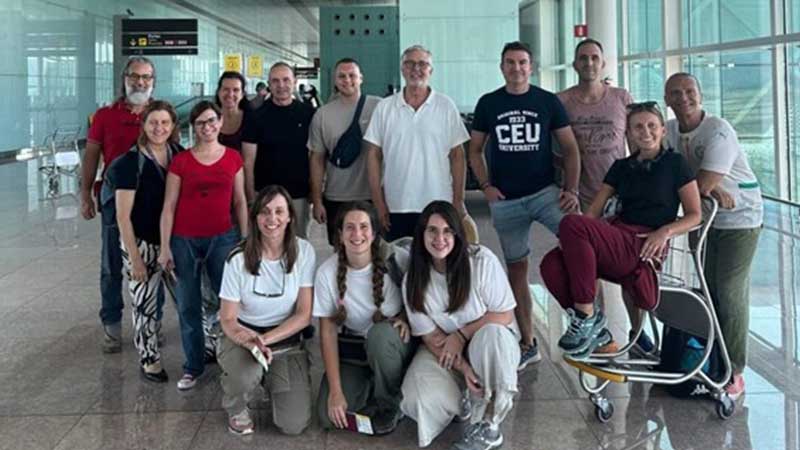
CEU students and lecturers participate in an international volunteering project on education and health in Senegal. Read the full story |



